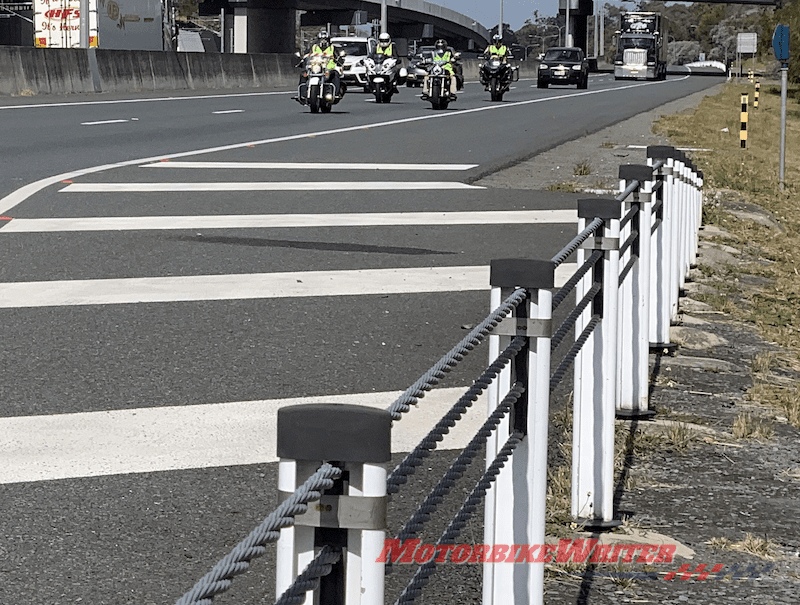Western Australia will be the first state in Australia to replace some of its wires rope barriers after a fatal involving a motorcyclist in a Christmas Toy Run late last year.
A spokesman for WA Transport Minister Rita Saffioti has confirmed that the State Government has allocated $57.2 million to replace ageing metal barriers and wire rope barriers on the Mitchell Freeway and sections of the Kwinana Freeway.
It follows calls from the Motorcycle Riders Association of WA president Jeff Thomas to speed up the replacement of the barriers, particularly in danger spots.
A spokesman for WA Transport Minister Rita Saffioti has now confirmed that the State Government has allocated $57.2 million to replace ageing metal barriers and wire rope barriers on the Mitchell Freeway and sections of the Kwinana Freeway.
“The barriers will be replaced with hard concrete crash barriers to help reduce maintenance costs, and to comply with the recently updated standards for barriers at rail corridor locations,” says special advisor Richard Farrell in a reply to Motorcycle Riders Association of Australia spokesman Damien Codognotto.
Richard says planning for the replacement program will be completed this financial year but works will not be completed until 2023.
Nevertheless, Damien calls the decision a “breakthrough”.
It follows moves in Norway and Ireland to reversed their policy on WRBs which have long been viewed as dangerous to motorcyclists.
Damien says the trend away from WRBs is damning for authorities that continue to roll out the dangerous barriers.
“This with the Victoria Auditor-General’s Office audit of VicRoads cost blow out and diversion of funds to cover wire rope barriers is damning,” he says.
“Never mind the dead and injured victims and traumatised loved ones.”
Damien has said that if road authorities and relevant ministers were not aware of the safety shortcomings of WRBs, “they should not be in their taxpayer-funded jobs”.
Apart from being considered dangerous by motorcycle riders, wire rope barriers are also unfair and discriminate against motorcycle and scooters riders, according to an Australian university road safety professor.
The professor, who wished to remain anonymous, pointed out that WRBs are officially acknowledged as posing more danger to riders and therefore discriminate against them.
His comments have been endorsed by Victorian Motorcycle Council chair Peter Baulch whose state is one of the most prolific in its use of WRBs.



